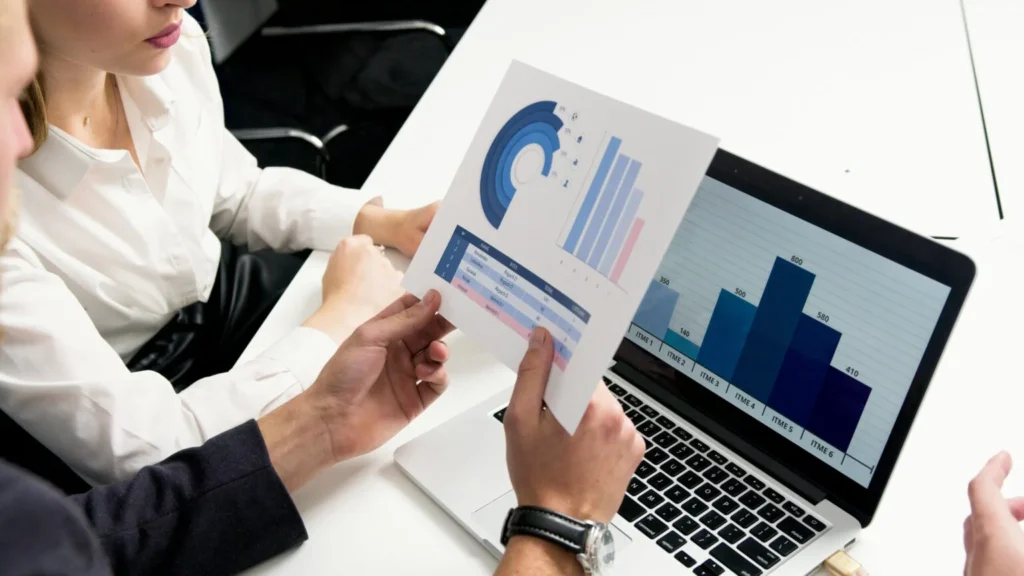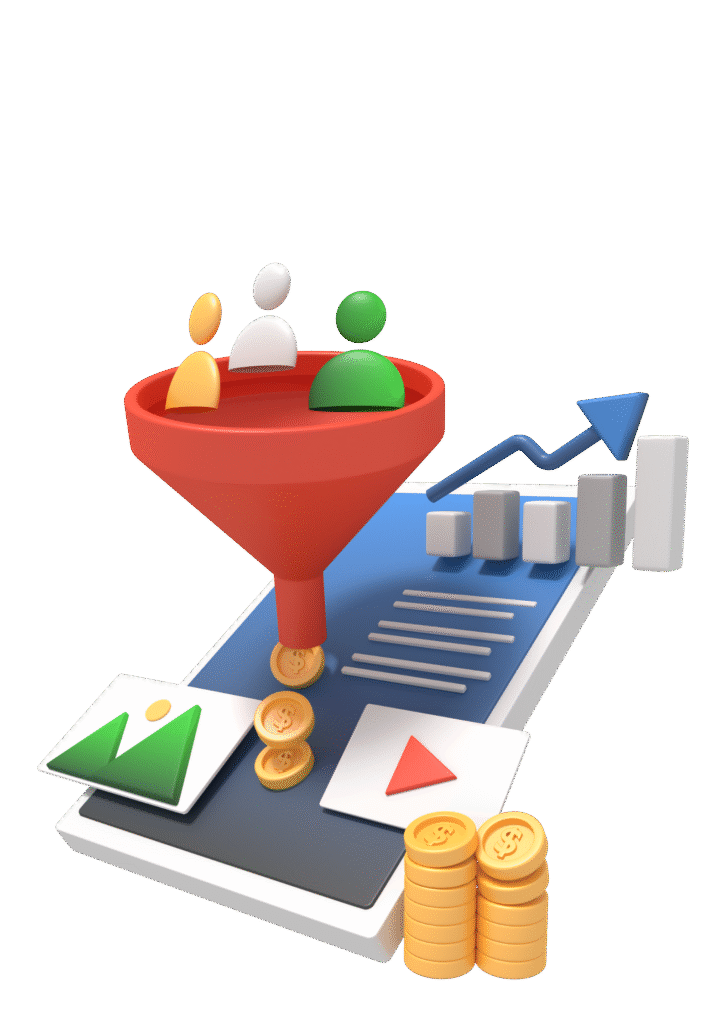
Understanding how customers move from first learning about your brand to finally making a purchase is key to building an effective digital marketing strategy. That journey is often visualized as a marketing funnel — a model that illustrates the stages a person goes through before becoming a customer. In this blog post, we’ll explain what the marketing funnel is, break down its stages, and show you why it’s essential for business growth.
What Is a Marketing Funnel?
The marketing funnel is a conceptual framework used to understand and guide a customer’s journey from awareness to conversion (and beyond). It represents the process people go through when they engage with your brand, starting broadly with potential interest and narrowing down to loyal customers.
It’s called a “funnel” because a lot of prospects enter at the top, but only a smaller percentage make it to the bottom and convert.
The 4 Classic Stages of the Marketing Funnel
There are many variations of the funnel, but the classic model breaks it down into four main stages:
1. Awareness
This is where potential customers first hear about your brand. Your goal is to get on their radar. Tactics include:
- SEO and blog content
- Social media posts
- Paid ads
- Influencer marketing
- PR and media mentions
The aim is to generate interest and attract a large pool of potential leads.

2. Interest
At this stage, the prospect knows who you are and starts to explore what you offer. Your job is to educate and build trust. Tactics include:
- Email newsletters
- Free guides or lead magnets
- Educational blog content
- Webinars and workshops
You want to move the user from passive observer to engaged prospect.
3. Decision
Now the prospect is seriously considering your product or service. They’re comparing options, evaluating benefits, and getting closer to making a choice. Tactics include:
- Case studies
- Product demos or trials
- Testimonials and reviews
- Personalized email nurturing
Your goal here is to help them overcome objections and choose you.
4. Action
The final stage is where the lead takes a desired action: making a purchase, signing a contract, or booking a service. Tactics to seal the deal include:
- Strong calls to action (CTAs)
- Limited-time offers
- Retargeting ads
- Easy checkout or sign-up processes
Congratulations! But the journey doesn’t end here…
Bonus Stage: Loyalty & Advocacy
Smart businesses know the funnel doesn’t stop after a sale. Turning customers into repeat buyers and brand advocates leads to long-term success.
Key tactics include:
- Follow-up emails and surveys
- Loyalty programs
- Referral incentives
- Customer support and engagement
A happy customer can become your most powerful marketing tool.
Why the Marketing Funnel Matters
Understanding and applying the marketing funnel helps your business in several key ways:
1. Improved Targeting
Each stage of the funnel requires different messaging and tactics. Knowing where someone is in their journey allows you to tailor your content for maximum impact.
2. Better Lead Nurturing
Instead of pushing for a sale immediately, you guide your leads naturally through their decision-making process. This builds trust and increases conversion rates.
3. Increased ROI
By focusing your resources on the most promising leads and using the right strategies at each stage, you reduce waste and increase marketing efficiency.
4. Stronger Customer Relationships
A funnel-based approach isn’t just about sales — it’s about creating a customer journey that builds loyalty and long-term value.
Adapting the Funnel for the Digital Age
The traditional funnel is linear, but in reality, customer journeys today are more fluid and multi-channel. People might jump stages, revisit earlier ones, or move through multiple paths at once.
To keep up, your funnel should:
- Be omnichannel (social, email, search, etc.)
- Use automation and personalization tools
- Rely on data and analytics to guide improvements
Modern marketing is all about creating flexible, user-focused experiences.
Final Thoughts
The marketing funnel is a timeless concept that remains just as relevant in 2025 as it was decades ago. When you understand how to guide potential customers through each stage of the funnel, you unlock the power to grow your brand more strategically.
Don’t leave your customer journey to chance. Use the marketing funnel to plan smarter campaigns, convert more leads, and create loyal customers who keep coming back.
Need help building or optimizing your funnel? Contact createwithus today for a strategy session tailored to your business goals
